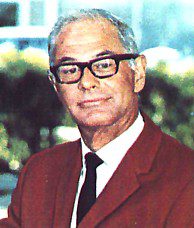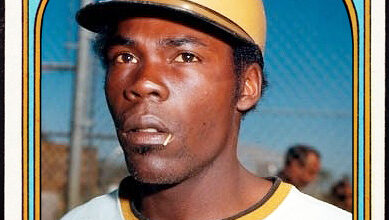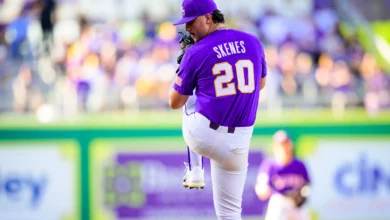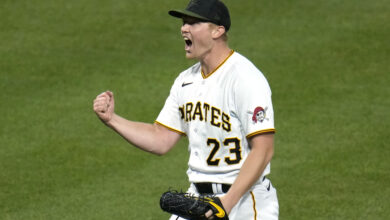

As my son and I were listening to game two of the World Series, one of the announcers used the phrase “a pitcher’s best friend.” Hearing this, my son innocently asked if the pitcher’s best friend had come to the game to watch. Not only did my jaw drop in reaction to him being innocently ignorant of the double play reference, but it occurred to me there are generations of baseball fans who do not speak or understand the language that the forefathers of baseball commentary uniquely crafted so listeners at home could feel the excitement that electrified the crowd in the ballpark. Perhaps today’s technology in sports broadcasting has taken the words away from creative color commentating and replaced it with high-definition effects and graphics.
To help our lost generation of baseball fans, I have comprised a list of baseball phrases used by the late Pirate’s commentator Bob Prince who was the voice of the Bucs on KDKA radio and television for 28 seasons (1948 to 1975), which included three World Series broadcasts in 1960, 1966 and 1971, as well as the 1965 All-Star Game. Nicknamed “The Gunner” by Cardinals broadcaster Jim Woods, Prince’s Gunnerisms are often imitated but never duplicated.
Let us begin our lesson in baseball jargon with the phrase “a bloop and a blast.” This means that when your team is down by two runs in late innings it needs to get a bloop single and then blast a home run to tie the game. Such a bloop single may be referred to as a “dying quail,” landing just over the infield. It’s also known as a “Texas Leaguer.” Supposing you can tie the game you need “A little bingle” or a hit to keep the rally going. This may be done with an “alabaster blast,” a base hit that came off the hard infield more commonly known as a “Baltimore chop.” If you are lucky, your next hitter may hit a “tweener” in the left or right field gap or a “frozen rope” line drive. Even if you had an “at ’em ball” and the hit was right at the fielder, there is always a chance it could get through and there would be “a bug loose on the rug” skipping and rolling all the way to the outfield wall. The best way to take the lead would be to hit the long ball, “kiss it goodbye”! And, if done by Willie Stargell, you could “spread some chicken on the Hill with Will.” Stargell owned a fried chicken restaurant in the Hill District of Pittsburgh and offered free chicken to any customer who was in line when he homered.
Assuming you now had the lead going into the top of the ninth, you needed your pitcher to throw “aspirin tablets,” referring to fastballs that were so quick they seemed that small. The fans would ignite with chants and screams calling upon “Babushka power,” urging the women to take off their scarves and wave them in the air. In addition, Heinz pickle rattles called the “Green Weenies” could be used to jinx the opposing team or start an offensive rally. However, with runners on base and only one out, it looks like the lead may be lost. On the next pitch, the batter swung so horribly that “he couldn’t hit that with a bed slat.” If the batter crowds the plate, a “soup cooler” delivered high and inside, up around the lips which blow on soup to cool it, could brush him back. Finally “for all the money, marbles and chalk” your pitcher throws a “low hummin’ riser” which causes the batter to hit a ground ball to the “Hoover” like infield sucking the ball up for a 6-4-3 double play. You can “pull out the plug mother” as the other team’s comeback rally went down the drain. “How sweet it is” that your team won and “Good night, Mary Edgerly, wherever you are.” Mary, who was a lifelong baseball fan of her beloved Pirates and a good friend of Prince, died at the age of 105.
Well, I hope this lesson in baseball jargon helped you. Don’t let baseball’s lingo become extinct, pass the rich tradition down for the younger generations of fans and aspiring big leaguers to enjoy. I missed hearing Bob Prince as I was born three years after his departure from the Pirates. According to baseball author James Forr, “Prince was responsible for the conversion of an untold number of fans in the Baby Boomer generation.” It is no doubt that my parents were included in the conversion, and, as a result, the Pirate heritage was passed on to me; now, I pass it on to you, just as his commentary has inspired today’s broadcasters who have several coined phrases depicting the pageantry and excitement of baseball.
One final thought, remember to teach your children to “never under estimate the power of the Green Weenie.”
Source: Bob Prince by James Forr. © 2002-2009, The Society for American Baseball Research (SABR) & The Respective Authors




